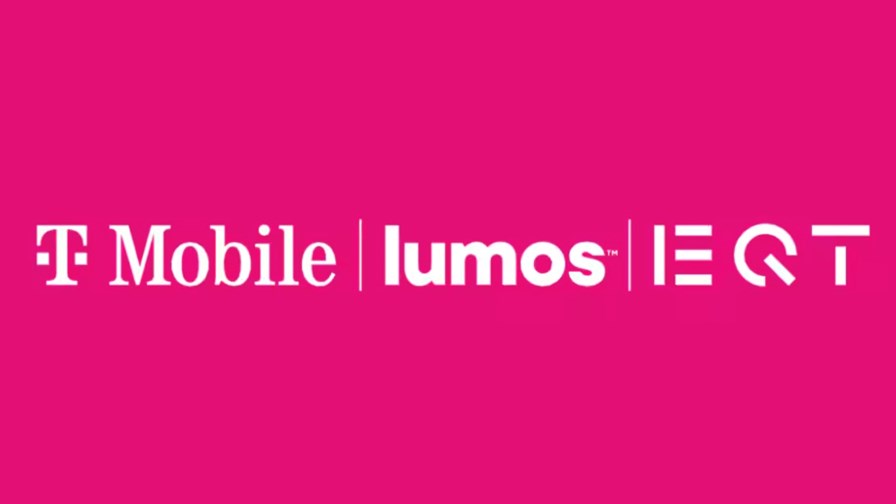
- T-Mobile US finally jumps into the fibre broadband market
- Could Apple et al become eSIM-enabled MVNOs?
- SoftBank strikes Honda deal as Cubic acquisition closes
In today’s industry news roundup: T-Mobile US has formed a joint venture and splashed some cash to enter the US fibre-to-the-premises services sector; industry analysts raise prospect of smartphone giants becoming eSIM-enabled mobile service providers; SoftBank signals major push into connected car sector as it closes majority stake acquisition in Cubic Telecom; and more!
The US market has been waiting for some time for T-Mobile US to enter the fixed broadband sector and now, at last, it’s happening… The mobile services giant, which has had success in recent times with its fixed wireless access (FWA) broadband service (see below for an update on that particular offering), is taking a significant step into the US fibre market, through a joint venture with private equity company EQT’s Infrastructure VI fund that will buy fibre-to-the-home (FTTH) platform Lumos. The operator will pay some $950m for a 50% stake in the JV, which will acquire Lumos from EQT’s predecessor fund, EQT Infrastructure III. As part of the deal, the new entity will acquire Lumos’s existing fibre customers, totalling some 320,000 households to which it currently provides fibre optic internet and home Wi-Fi service. The company also plans to invest an additional $500m between 2027 and 2028 to extend the number of homes Lumos passes with its FTTH network to 3.5 million homes by the end of 2028. The deal is expected to close later this year or early 2025. T-Mobile claimed that the JV will deliver “best-in-class” high-speed fibre internet connectivity to customers across the US. Upon closure of the deal, Lumos will move to a wholesale model, where T-Mobile will be the anchor tenant, owning customer relationships and leveraging its brand to attract new subscribers. In addition, the JV will focus on market identification and selection, network engineering and design, network deployment, and customer installation. T-Mobile’s CEO, Mike Sievert, described the deal with EQT as “a scalable strategy for T-Mobile” to expand its broadband portfolio and “continue shaking up competition in this space to bring even more value and choice to consumers”. The telco added that the new joint venture will be “a unique value proposition” in the market, as it includes the company’s 5G internet solution, a fixed wireless access (FWA) service on its 5G network, which serves more than 5 million customers. The company also offers T-Mobile Fiber, which has launched in 16 markets across the US.
Alongside this announcement, T-Mobile also reported its results for the opening three months of 2024. Its total revenues declined slightly year on year, down 0.2% to $19.6bn, while adjusted earnings before interest, taxes, depreciation and amortisation (EBITDA) were up 6.3% to $7.6bn. The operator’s service revenues rose by 4% to $16.1bn, and its postpaid service revenues were up 6% to $12.6bn, both of which it said were “best-in-industry growth”. While the telco attracted new customers to its reported services in the period, it saw declines across postpaid net account and customer additions, as well as in postpaid phone net customer additions. Notably, it signed fewer customers up to its fixed wireless access (FWA) service (which it refers to as high-speed internet) in the period, adding 405,000 new FWA subscribers in the first quarter, some 118,000 less than in the opening quarter of 2023. Still, T-Mobile said the FWA additions were the best in the industry, and that its total subscriber base has now surpassed 5 million customers. Find out more.
And yet more on T-Mobile US… Telecom regulator the FCC has given its approval for T-Mobile US’s $1.35bn acquisition of Mint Mobile, a deal that was first announced in March 2023. According to Reuters, T-Mobile US expects to close the acquisition on 1 May.
Here’s an interesting scenario to keep in mind in the digital service provider (DSP) landscape… As eSIM capabilities become more entrenched in smartphones around the world, the possibility that large device manufacturers, such as Apple and Samsung, might consider becoming mobile virtual network operators (MVNOs) and compete with traditional telcos becomes stronger. That’s a scenario that was discussed by analysts from research house CCS Insight during a recent webinar on eSIM technology developments. “What’s to stop an OEM [original equipment manufacturer] like Apple themselves offering eSIM capabilities?” asked CCS Insight’s senior analyst, Luke Pearce, reports Forbes. His colleague, CCS Insight’s director of consumer and connectivity, Kester Mann (a regular contributor of commentary to TelecomTV), added: “One of the most drastic scenarios for eSIM operators could be if it encourages major phone manufacturers to become virtual network providers.” He acknowledged that while such a situation was unlikely to happen any time in the near future, “the industry should be prepared for such a scenario, as it might mean that one day a customer could take a device and a service plan from the same company, without necessarily needing to interact with a traditional operator.” According to a forecast from Counterpoint Research, 70% of all cellular devices shipped in 2030 will support an eSIM, and Apple is already shipping smartphones that support only eSIM technology.
Japan’s SoftBank has completed its €473m acquisition of a 51% equity stake in the Irish provider of software-defined connected vehicle solutions, Cubic Telecom, a deal that was first announced in December 2023. With the purchase now completed, SoftBank has struck a number of new agreements to help boost Cubic’s international sales, especially in the Asia Pacific region. To that effect it has reached an agreement with Honda whereby the car manufacturer “will consider introducing Cubic Telecom’s connectivity platform… in approximately 70 countries and regions worldwide, excluding North America and China. SoftBank and Honda will further explore implementing Cubic Telecom’s connectivity platform going forward,” noted SoftBank. Read more.
Millicom, which provides fixed and mobile services to about 45 million customers in multiple Latin American markets using its Tigo brand and generates annual revenues of around $5.7bn, has appointed Marcelo Benitez as its new CEO with effect from 1 June. Benitez has been with the operator for more than 30 years and is currently the head of Tigo Panama. The appointment “completes the final phase of a succession planning and selection process, which included a thorough evaluation of internal and external candidates to ensure that the company’s next CEO possesses the vision, experience, talent and leadership qualities necessary to deliver on Millicom’s strategic plans,” according to the company. He takes over from Mauricio Ramos, who will continue as the operator’s chairman. Read more.
Swisscom has been fined 18m Swiss francs (CHF) (US$19.7m) for allegedly violating antitrust legislation by making it impossible for competitors to access its fibre optic network. In a translated statement, the Swiss competition watchdog Comco explained that Swisscom changed the design of its fibre network at the start of 2020, preventing rivals from having direct access to the network. It explained that Swisscom did so to benefit from lower costs and faster network expansion, but added that these reasons are “not sufficient” to justify the reduction in competition levels in the market since 2020. Comco urged Swisscom to expand its fibre optic network in a way that allows third parties to use the infrastructure. In response, Swisscom described the commission’s decision as “incomprehensible”. The telco “remains convinced that its decision to adopt a point-to-multipoint (P2MP) topology between the exchange and local cable duct (manhole), which it began using in 2020, was the right one. Contrary to the stance taken by Comco, all competitors would have been able to obtain a data stream from Swisscom for a specific connection on non-discriminatory terms, enabling them to continue to offer a full and competitive range of services, including telephony, internet and TV,” it argued in a statement addressing the decision. According to Swisscom, Comco’s view was that its fibre network expansion should be permitted to continue in point-to-point (P2P) topology, but the Swiss operator claims this would delay expansion of the network and bring “significantly higher costs, especially in rural areas”. The telco noted that its financial outlook for 2024 remains unchanged, despite the penalty, and added that it reserves the right to appeal Comco’s decision before the Federal Administrative Court of Switzerland.
- The staff, TelecomTV
Email Newsletters
Sign up to receive TelecomTV's top news and videos, plus exclusive subscriber-only content direct to your inbox.




